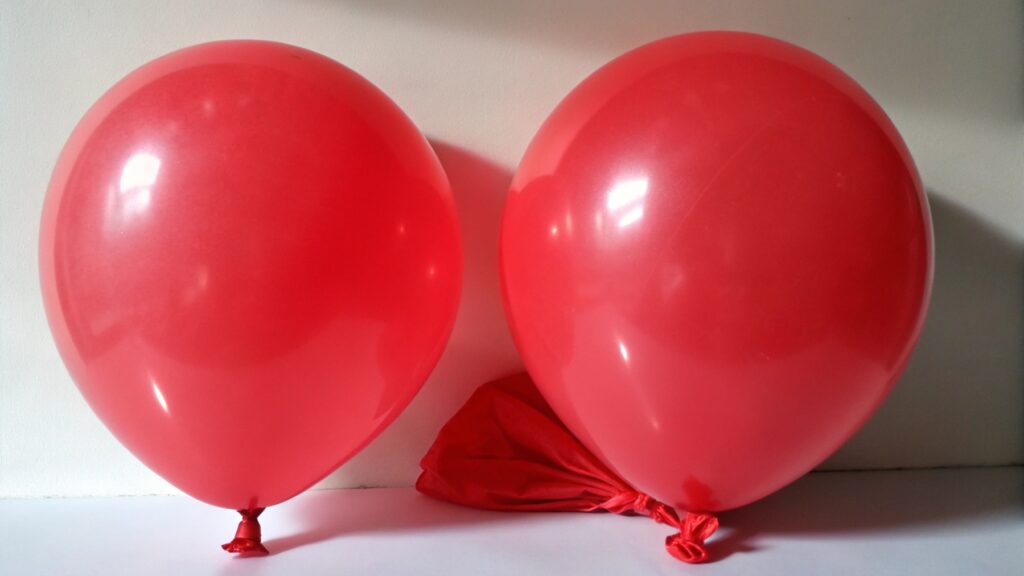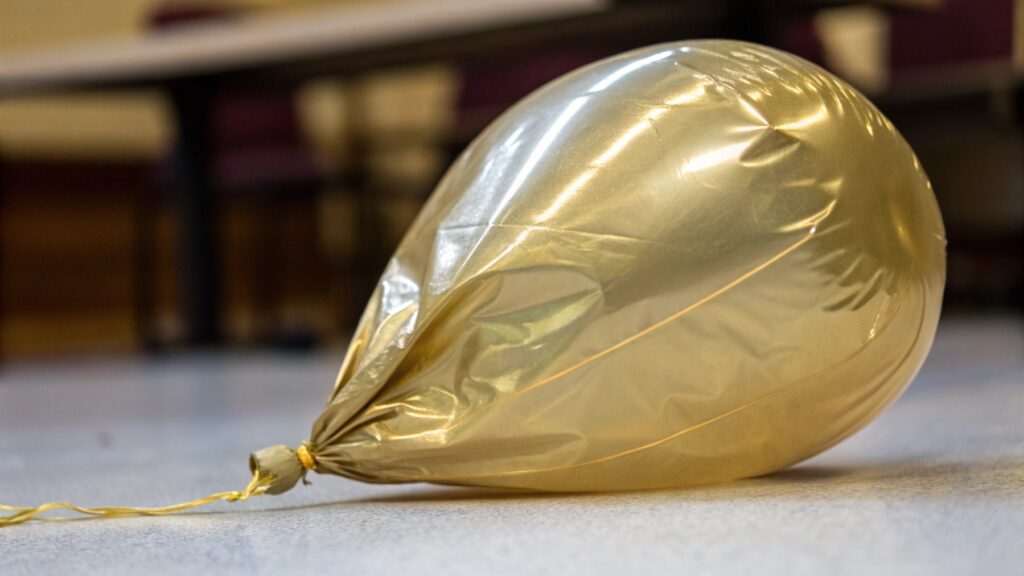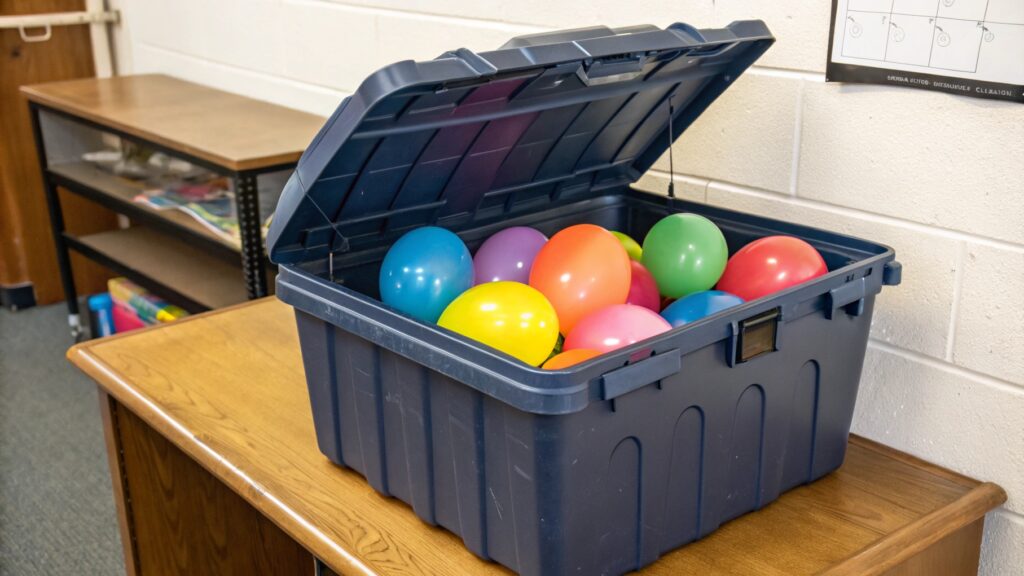How can you store latex balloons so they can be used for future parties and events?
Planning a party and have leftover balloons? Don't let them go to waste! Storing latex balloons the right way saves money and keeps them ready for the next celebration.
Storing latex balloons properly1 is key to keeping them in good condition for future use. The best way to store uninflated balloons is in a cool, dry place2 away from direct sunlight. Inflated balloons can be kept fresh for a limited time, usually up to a week, under controlled conditions.

I have seen many customers waste perfectly good balloons because they didn't store them correctly. It's a simple thing, but it makes a big difference in their lifespan.
What are the best storage conditions for latex balloons to prevent degradation3?
Are your latex balloons getting sticky or losing their stretch before you even use them? Bad storage is likely the problem.
The best conditions for storing latex balloons are cool and dry. Latex is a natural material, and it breaks down when it gets too hot or too wet.

From my experience in the balloon business for many years, the biggest enemies of latex balloons are moisture and direct sunlight. High humidity can make the balloons stick together, and sunlight or high temperatures cause the latex to degrade quickly, losing its elasticity and becoming brittle. Imagine leaving a rubber band out in the sun; it gets stiff and breaks easily. Balloons do the same thing. I recommend storing them in a place like a closet or a basement that stays a constant temperature and isn't damp. Avoid attics or garages where temperatures can swing wildly. Think of it like storing food; you want to keep it in a stable environment to prevent it from spoiling.
Why do temperature4 and humidity5 matter?
- Temperature:
- High temperatures speed up the aging process of latex.
- Low temperatures can make balloons stiff, but they recover at room temperature.
- Humidity:
- High humidity makes balloons sticky and harder to separate.
- Low humidity is better for long-term storage.
| Condition | Impact on Latex Balloons |
|---|---|
| High Temperature | Faster degradation, loss of elasticity |
| Low Temperature | Stiffening (temporary) |
| High Humidity | Sticking together, potential mold growth |
| Low Humidity | Ideal for storage |
| Direct Sunlight | Rapid degradation, color fading, brittleness |
Keeping these factors in mind helps ensure your balloons are ready when you are.
How can I keep inflated latex balloons fresh for several weeks?
Did you inflate balloons early for an event, only to find them looking sad and deflated too soon? Keeping inflated balloons fresh for weeks is a challenge.
Keeping inflated latex balloons fresh for an extended period, like several weeks, is usually not possible. They naturally deflate over time as air or helium leaks through the porous latex.

While keeping inflated balloons fresh for several weeks is highly unlikely, you can extend their life for maybe up to a week under the right conditions. I've seen people try different things. Storing them in a cool room helps, as heat makes the air inside expand and escape faster. Keeping them away from sharp objects and rough surfaces is also obvious, but important. Some people use special balloon treatment liquids that coat the inside of the balloon to reduce air leakage, but even with those, a week is usually the maximum you can hope for for a good-looking balloon. Helium-filled balloons usually last less time than air-filled ones because helium molecules are smaller and escape through the latex faster. If you need balloons to last longer than a day or two, consider inflating them closer to the event time.
What affects how long inflated balloons last?
- Type of gas: Air lasts longer than helium.
- Temperature: Cooler temperatures extend life.
- Humidity: High humidity can sometimes shorten life.
- Quality of balloon: Higher quality latex deflates slower.
- Inflation size: Over-inflating stretches the latex more, leading to faster deflation.
| Factor | Impact on Inflated Balloon Life |
|---|---|
| Air vs. Helium | Air lasts longer |
| High Temp | Shorter life |
| Low Temp | Longer life |
| High Humidity | Can shorten life |
| Low Humidity | Can extend life |
| High Quality | Longer life |
| Low Quality | Shorter life |
| Over-inflation | Shorter life |
Managing these factors can give you a little extra time with your inflated decorations.
Is it possible to deflate and reuse latex balloons effectively?
Finished with a party but hate throwing away perfectly good balloons? Can you just let the air out and use them again later?
While technically you can deflate a latex balloon, reusing it effectively is often difficult. The latex stretches when inflated, and it doesn't fully return to its original state, making it weaker and harder to reinflate to the same size and shape.

In my experience, trying to reuse deflated latex balloons rarely works well for important events. When you inflate a balloon, the latex stretches out. When you deflate it, it doesn't completely go back to how it was before. The material becomes thinner and weaker. If you try to reinflate it, you'll often find it doesn't hold air as well, might have weak spots, or won't inflate to the same size or shape as a new balloon. It's like stretching a rubber band over and over; eventually, it loses its snap. For simple practice or non-critical decorations, you might get one more use out of them, but for something where you need consistent quality and shape, like a balloon arch or centerpiece, I always recommend using new balloons. The small cost saving isn't usually worth the risk of a balloon popping or looking uneven.
Why is reusing difficult?
- Latex stretching: Inflation permanently stretches the material.
- Loss of elasticity: The balloon loses some of its ability to return to shape.
- Weakened points: Stretched areas can become weak.
- Difficulty sealing: It can be hard to get a good seal again.
| Reuse Attempt | Outcome |
|---|---|
| First inflation | Optimal size, shape, and durability |
| Second inflation | Reduced size, potential weak spots |
| Third+ inflation | Significant shape distortion, likely to pop |
For the best results, especially for helium, stick with new balloons.
What materials or containers are recommended for storing unused latex balloons long-term?
Have bags of unused balloons sitting around, hoping they'll last until the next party? The right container makes a big difference.
The best materials and containers for storing unused latex balloons long-term are airtight and opaque6. This protects the balloons from air, moisture, and light, which are major causes of degradation.

Based on years of handling balloon inventory, the best way to store uninflated balloons for a long time is to keep them sealed away from anything that can damage them. I always tell customers to use airtight containers or thick, sealable plastic bags. Ziploc bags are okay for short-term, but for long-term storage, a sturdy plastic bin with a lid that seals tightly is better. The container should also be opaque, meaning light can't get through it. Light, especially sunlight, breaks down latex over time, even when they're not inflated. Think of how rubber items left outside get faded and cracked; the same thing happens to balloons, just maybe slower indoors if they are near a window. Putting them in a box or bin that blocks light and keeps out air and moisture is the key to making them last. Adding a small desiccant packet (like those little silica gel packets you find in shoe boxes) can help absorb any moisture inside the container, which is an extra step I sometimes recommend for very humid climates.
Recommended storage containers:
- Airtight Plastic Bins: Durable and block light if opaque.
- Thick, Sealable Plastic Bags: Good for smaller quantities, make sure they are heavy-duty.
- Original Packaging: If the packaging is a thick, sealed bag, it can work short-term.
- Cardboard Boxes: Not airtight, but better than nothing if stored in a dry place. Avoid if humidity is an issue.
| Container Type | Airtight? | Opaque? | Long-Term Suitability | Notes |
|---|---|---|---|---|
| Airtight Plastic Bin | Yes | Can be | Excellent | Look for solid, non-transparent bins. |
| Thick Sealable Bag | Yes | No | Good | Store in a dark place if bag is clear. |
| Thin Ziploc Bag | Limited | No | Fair (short-term) | Not truly airtight. |
| Cardboard Box | No | Yes | Poor | Susceptible to moisture and pests. |
| Original Mylar Bag | Yes | Can be | Good | Varies by manufacturer. |
Using the right container in a good storage location will help your balloons stay fresh for years.
Conclusion
Storing latex balloons correctly is simple: keep them in a cool, dry, dark place using airtight containers for best results.
-
Discover expert tips on how to store latex balloons to ensure they remain in perfect condition for your next event. ↩
-
Learn about the significance of temperature and humidity in preserving your balloons' quality. ↩
-
Learn effective methods to prevent degradation and ensure your balloons remain in perfect condition for your events. ↩
-
Learn about the ideal temperature conditions for storing latex balloons to prevent degradation and maintain quality. ↩
-
Understanding the impact of humidity on latex balloons can help you make informed decisions for storage and usage. ↩
-
Discover why using airtight and opaque containers is crucial for preserving the quality of your balloons over time. ↩
